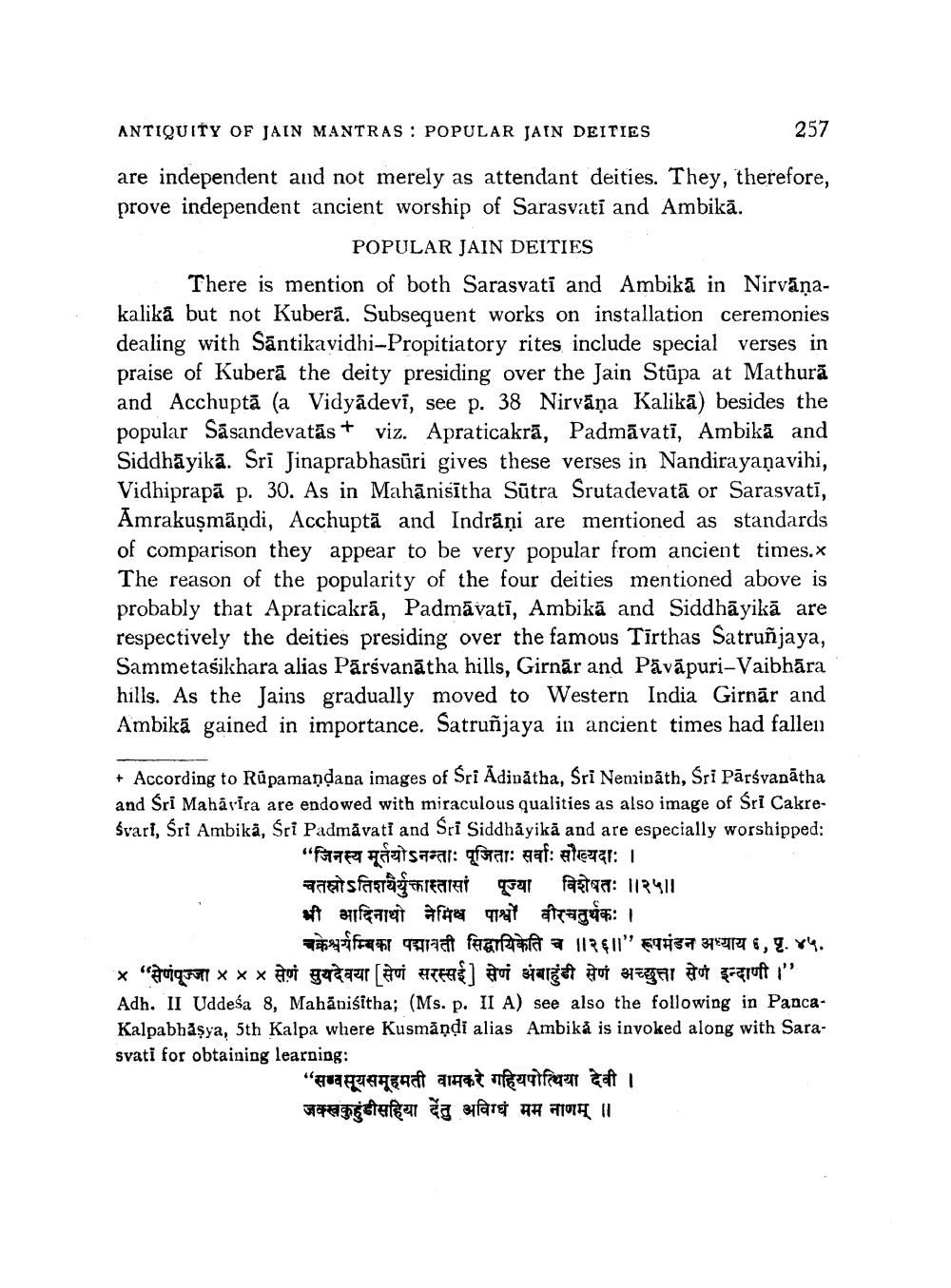________________
ANTIQUITY OF JAIN MANTRAS : POPULAR JAIN Derries
257
are independent and not merely as attendant deities. They, therefore, prove independent ancient worship of Sarasvati and Ambikā.
POPULAR JAIN DEITIES There is mention of both Sarasvati and Ambika in Nirvanakalika but not Kubera. Subsequent works on installation ceremonies dealing with Sāntikavidhi-Propitiatory rites include special verses in praise of Kuberā the deity presiding over the Jain Stūpa at Mathurā and Acchuptā (a Vidyādevi, see p. 38 Nirvāna Kalikā) besides the popular Säsandevatās + viz. Apraticakrā, Padmāvati, Ambikā and Siddhāyikā. Sri Jinaprabhasüri gives these verses in Nandirayaņavihi, Vidhiprapā p. 30. As in Mahānisītha Sūtra Srutadevatā or Sarasvati, Amrakuşmāņdi, Acchuptā and Indrāņi are mentioned as standards of comparison they appear to be very popular from ancient times. The reason of the popularity of the four deities mentioned above is probably that Apraticakrā, Padmāvatī, Ambikā and Siddhāyikā are respectively the deities presiding over the famous Tīrthas Satruñjaya, Sammetasikhara alias Pārsvanātha hills, Girnār and Pāvāpuri-Vaibhāra hills. As the Jains gradually moved to Western India Girnār and Ambikā gained in importance. Satruñjaya in ancient times had fallen
+ According to Rūpamandana images of Sri Adinatha, Sri Nemināth, Sri Pārsvanātha and Sri Mahavīra are endowed with miraculous qualities as also image of Sri CakreSvari, Sri Ambika, Sri Padmavati and Sri Siddhāyikā and are especially worship
"FFFFT Haasasar: qfsar: aaf: aletar: | चतस्रोऽतिशयैर्युक्तास्तासां पूज्या विशेषतः ॥२५।। भी आदिनाथो नेमिश्च पाश्वों वीरचतुर्थकः ।
चक्रेश्चर्यम्बिका पद्मावती सिद्धायिकेति च ||२६॥" रूपमंडन अध्याय 8, पृ. ४५. x "सेणंपूज्जा x x x सेणं सुयदेवया [सेणं सरस्सई] सेणं अंबाहुंडी सेणं अच्छुत्ता सेणं इन्दाणी।" Adh. II Uddeśa 8, Mahānisitha; (Ms. p. II A) See also the following in PancaKalpabhăşya, 5th Kalpa where Kusmāņdi alias Ambika is invoked along with Sarasvati for obtaining learning:
"सण्वसूयसमूहमती वामकरे गहियपोत्थिया देवी । जक्खकुहुंडीसहिया देंतु अविग्धं मम नाणम् ।।




